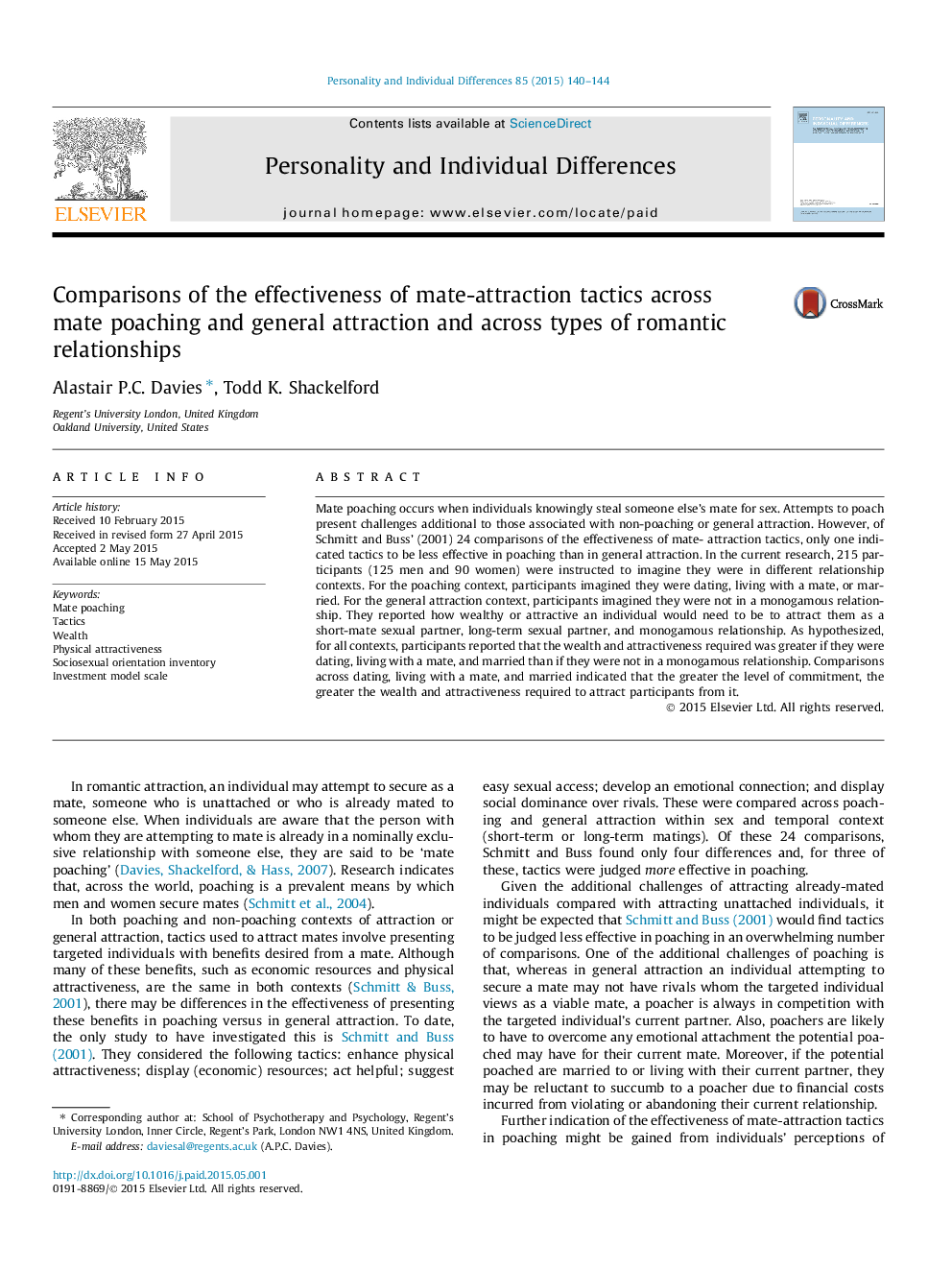| Article ID | Journal | Published Year | Pages | File Type |
|---|---|---|---|---|
| 7251274 | Personality and Individual Differences | 2015 | 5 Pages |
Abstract
Mate poaching occurs when individuals knowingly steal someone else's mate for sex. Attempts to poach present challenges additional to those associated with non-poaching or general attraction. However, of Schmitt and Buss' (2001) 24 comparisons of the effectiveness of mate- attraction tactics, only one indicated tactics to be less effective in poaching than in general attraction. In the current research, 215 participants (125 men and 90 women) were instructed to imagine they were in different relationship contexts. For the poaching context, participants imagined they were dating, living with a mate, or married. For the general attraction context, participants imagined they were not in a monogamous relationship. They reported how wealthy or attractive an individual would need to be to attract them as a short-mate sexual partner, long-term sexual partner, and monogamous relationship. As hypothesized, for all contexts, participants reported that the wealth and attractiveness required was greater if they were dating, living with a mate, and married than if they were not in a monogamous relationship. Comparisons across dating, living with a mate, and married indicated that the greater the level of commitment, the greater the wealth and attractiveness required to attract participants from it.
Related Topics
Life Sciences
Neuroscience
Behavioral Neuroscience
Authors
Alastair P.C. Davies, Todd K. Shackelford,
